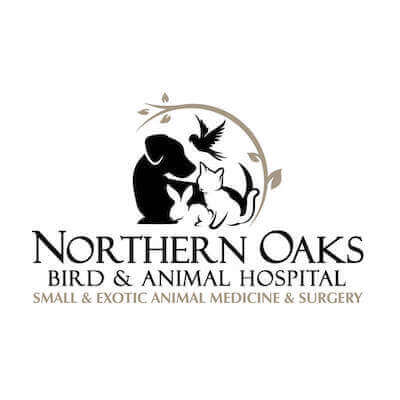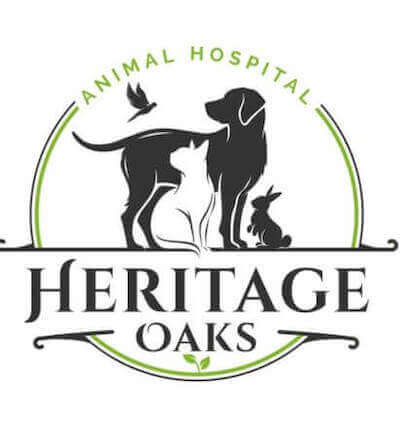Puppy Care
One of the greatest joys in life is having a cuddly, cute puppy to have and hold. Our staff and veterinarians love to be a part of this exciting and special time and want to provide you with the best information and health care for a great start for your new puppy's life.
First Visit
The puppy should have an examination within the first week. During your first veterinary visit, we will perform a thorough physical and gather information from you to help obtain a complete background history of your puppy's health.
- Vaccination plans and schedules
- Safe options for diagnosing and treating internal and external dog parasites
- Signs of illness
- Spaying or neutering
- Behavior and basic obedience training
- Potty training
- Puppy diets
While some of these apply to all puppies, our veterinarians will take into account factors such as breed, age, your lifestyle, and any current health or behavioral issues to tailor a plan to your puppy's needs.
Quality Puppy Food
Understanding puppy food is extremely important. There are many marketing and online campaigns now that will emotionally sway without any scientific backing. Your puppy's body is growing in ways that will directly impact his or her quality of life for many years to come. Choose a puppy food that has been specifically formulated for young and growing dogs and seek our input, rather than the internet. See our nutrition link here. Always look for a statement from the Association of American Feed Control Officials (AAFCO) that ensures the puppy food you choose meets or exceeds nutritional requirements for growing canine bodies.
- Small and medium-sized dogs can be weaned off of puppy food and onto adult dog food between 9 and 12 months of age
- Large breed dogs should stick with large breed puppy food until they reach 1+ year of age
Make sure your puppy has fresh and abundant water early in the day to help break down the puppy food, as well as to keep them hydrated. Having a regular, structured, feeding and walking schedule will be a tremendous help with potty training. Puppies will begin to learn, understand and enjoy a scheduled routine. Download our potty training handout here.
Start Puppy Potty Training With A Good Bathroom Routine
Please remember that your puppy is not going potty in the house on purpose but because he or she doesn't know any better. Your best allies during puppy potty training are patience, planning, and plenty of positive reinforcement. Do not dwell on negative reinforcement when accidents happen (and they will happen), because it is essential to maintain a bond of trust and security between puppy and owner during puppy potty training that only compassion and calmness can facilitate. Different sizes and breeds will train differently. Download our Crate Training Handout here.
Crate training is a way to confine the puppy in a small area so that it does not soil the house or chew up shoes when he or she is not being watched. The crate can be used humanely when owners have set up a schedule for eating and going outside to help with potty training. The crate can become a den for most dogs and greatly aid in the owner's ability to potty train.
Puppy potty training begins with knowing when you should take your puppy outside to do his or her business. The most common times to take your puppy out to potty are:
- When you wake up (or the puppy wakes up)
- Right before bedtime
- Immediately after your puppy eats or drinks and again 20-30 minutes after
- When your puppy wakes up from a nap
- During and after physical activity
Once your puppy begins his or her vaccinations, he or she is ready to begin puppy class with other vaccinated puppies for social skills. Begin puppy classes at 7-8 weeks and continue from puppy class to the next stage of basic training.
Signs Of Illness In Puppies
Young puppies are susceptible to illnesses and diseases that can be very serious, most of which are entirely preventable. Puppy vaccinations are extremely important. However, puppy vaccinations alone will not prevent all illnesses. The key to preventing illness is being diligent in monitoring your puppy's behavior for symptoms. If you observe any of the following symptoms in your puppy, contact us immediately:
- Lack of appetite
- Poor weight gain
- Vomiting
- Swollen or painful abdomen
- Lethargy (tiredness)
- Diarrhea
- Difficulty breathing
- Wheezing or coughing
- Pale gums
- Swollen, red eyes or eye discharge
- Nasal discharge
- Inability to pass urine or stool
These symptoms all indicate urgent or emergency situations and require immediate care. Should you notice any of these symptoms, please call our hospitals immediately.
Schedule Puppy Vaccinations
Puppy vaccinations should take place every 3-4 weeks until 16 weeks of age during the first several months of life, and continue with booster immunizations throughout adulthood.
It is important to stay current with your puppy vaccinations. Puppy vaccinations have been medically proven to combat preventable deadly diseases and illnesses that will occur without immunizations. Puppy vaccinations are a huge part of responsible puppy care, and your puppy deserves no less than every chance to be healthy and happy for life.
The American Veterinary Medical Association supports early spaying and neutering. Delaying this procedure past sexual maturity can lead to increased incidences of mammary tumors in females and testicular cancer in males.
In general, puppies recover a lot faster than adult dogs. It is an easier surgery for them and one that reduces the rate of disease later on. We absolutely love puppies and dogs of all kinds, but also believe that there are currently too many who end up in shelter situations and euthanized because of failure to control the pet population. For more information on spay or neuter services for your puppy, please visit our spay or neuter page.
During your puppy's visits to our hospital, we will help to identify problem behaviors and help you understand how to deter your puppy from developing bad habits. We will discuss and concerns you may have and offer solutions.
For example, dogs lacking socialization skills are much more likely to react with fear or aggression to unfamiliar people, animals, and experiences. Dogs who are relaxed about honking horns, cats, cyclists, veterinary examinations, crowds, and long stairwells are easier and safer to live with than dogs who find these situations threatening. Well-socialized dogs also live much more relaxed, peaceful and happy lives than dogs who are constantly stressed out by their environments.
Contact Us to Schedule A Veterinary Appointment For Your Puppy
Scheduling a puppy care appointment with our veterinary team is as easy as picking up the phone or sending us an email. Our veterinary staff is here to make your trip to the vet easy for you while ensuring it's also stress-free for your puppy.




